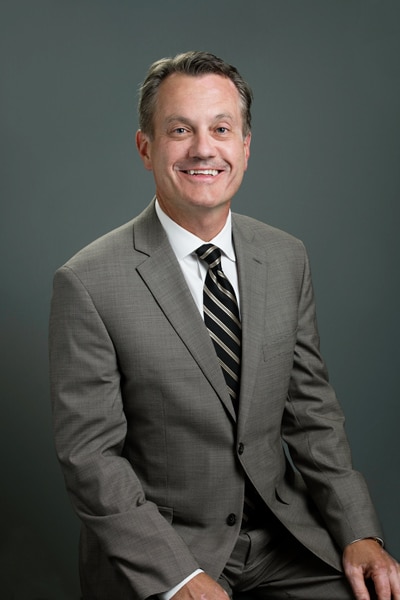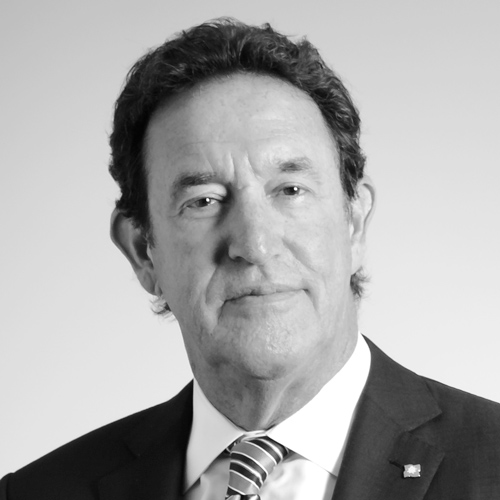Russell Showers grew up with a passion for healthcare. His aunt was a nurse, and Showers would regularly hear inspiring stories about her because of how many lives she touched in the community. Although he didn’t pursue a medical career, Showers still managed to follow in his aunt’s footsteps, becoming senior vice president, chief human resources officer at the nonprofit healthcare system Tower Health.
In 2017, Reading Health System became Tower Health upon its acquisition of five hospitals, expanding its reach throughout Northeast Pennsylvania and into Philadelphia, which also expanded its employee size to about eleven thousand. This year, the organization will also be celebrating its 150th anniversary. As the healthcare market continues to change and Tower Health continues to grow, Showers has sought ways to best prepare the healthcare system’s employees for the future.

When Showers joined Tower Health, he recognized a flaw in the orientation process for new leaders. He learned that after completing a standard employee orientation, leaders were mainly tasked with guiding themselves through the relevant processes. “It was not accomplishing what we wanted it to accomplish,” Showers recalls. “There was not an organized experience.”
As a result, Showers and his team developed a three-month onboarding program, which continues from the new employee orientation that managers, directors, and senior directors complete in cohorts. Within the first forty-five days of the program, new leaders are trained on key systems and processes. They learn about the scheduling and managerial tools that support their work and meet with finance and HR leaders to review the processes and services that are available to them. They also meet with executive leaders to discuss the strategic plan, the organizational structure, and company culture.
“We spend some time covering what it means to be a leader here and what’s expected of them as a leader,” Showers says. “They get to learn where we’re at from a big picture, systemic perspective.”
To encourage professional networking, new leaders are invited to small-group lunches, where they meet colleagues from other sectors of the organization and members of the senior leadership team. “Our leaders love the program,” Showers says. “They’ve told us that it’s helped them be more productive. It’s helped them feel more comfortable about joining us. It’s helped them make some friends and professional connections. It’s helped them more easily learn how to navigate the organization.”
It was also in 2015 when human resources launched a leadership development series that offers leaders further skill development opportunities. Participants learn team management, performance management, communication skills, and are individually coached based on their strengths, weaknesses, and blind spots.
Showers and his team also partnered with an external firm to develop a similar program for physician leaders and physician high-potentials called Applied Physician Leadership Academy. This training covers leadership concepts and includes a section on healthcare economics and the healthcare market transformation. With the onboarding process, the leadership trainings offer an opportunity to engage with enterprise-wide issues. As part of the program, physicians are placed in Action Learning Teams and are assigned an organizational challenge to solve. Their solutions are then implemented across the organization and offer physicians an opportunity to further impact the organization’s future.
“It’s helped improve the relationship between administrative leadership and the physicians,” Showers explains. “The high-potential and physician leaders loved it. They felt recognized, they felt involved, and they loved the learning.”
The leadership development series also focuses on skills necessary to adapt to the changing healthcare marketplace and the growing organization. “Focusing on how to lead change and how to cope with change was not a priority here five to seven years ago, and it didn’t really need to be,” Showers says. “Now, it is a priority that a leader knows how to work with their group, help them manage change, help them understand why certain things are changing—especially difficult changes—and give them tools on how to cope with change.”
Tower Health is well-positioned to adapt to the changing landscape. It has been a long-standing staple within the region and has received national recognition. “Our employees are committed to the patients they serve because they’re from this community,” Showers says. “With that, Tower has been very successful.”
Although significant, Tower Health’s accomplishments were not widely shared with employees or the community when Showers joined in 2014. Showers was an active participant in the development of the 101 Reasons campaign, a list format initiative that showcased the health system’s achievements, starting with the employees themselves. “Healthcare is a people business,” Showers says. “We really have some exceptional people here, and they really do a lot of great things during the day that go unnoticed.”
The 101 Reasons were communicated and displayed across the organization as well as in print, radio, TV, and billboard ads to the public. Employees have let the human resources team know that the 101 Reasons campaign made them more excited about working at Tower Health. And for tenured employees, it instilled a new sense of pride. “Over the years, you get to see the warts in a place, and it can begin to tarnish the reality,” Showers says. “We’ve received feedback that people have taken on, to some degree, a new sense of pride about working here. They’re more open about telling their friends and neighbors, ‘You should come here for care.’”
Through these initiatives, Showers is continuing both his family’s healthcare legacy and the legacy of Tower Health. “Within my job, I’m adding to an organizational legacy that was started and created before I got here, and it will continue to be built and developed and grow after I’m gone,” Showers says. “We’re trying to create great environments for people who are dealing with human life. It’s a serious business. It doesn’t get much more serious than that.”
Photo: PolettPhoto


